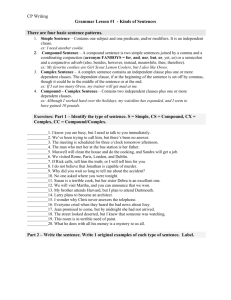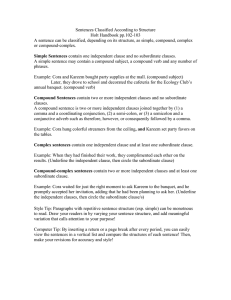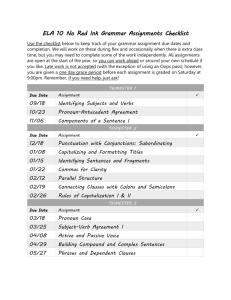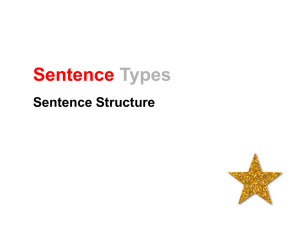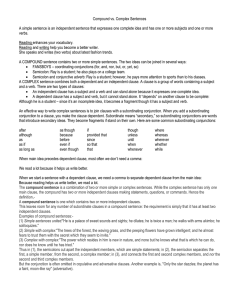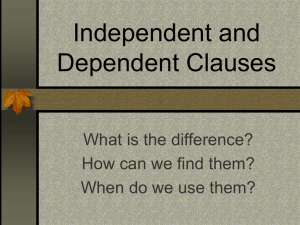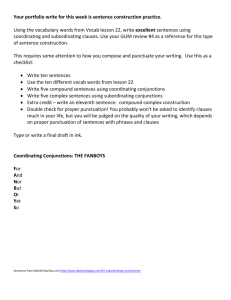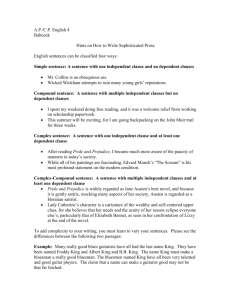Sentence Type Journal Notes
advertisement
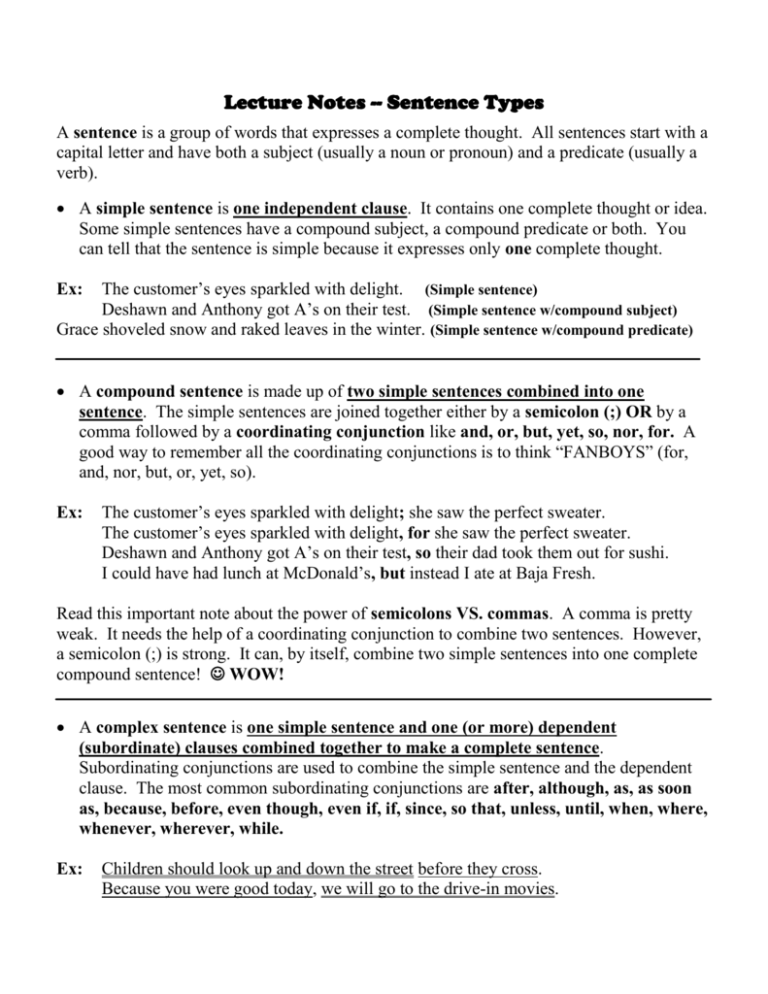
Lecture Notes -- Sentence Types A sentence is a group of words that expresses a complete thought. All sentences start with a capital letter and have both a subject (usually a noun or pronoun) and a predicate (usually a verb). A simple sentence is one independent clause. It contains one complete thought or idea. Some simple sentences have a compound subject, a compound predicate or both. You can tell that the sentence is simple because it expresses only one complete thought. The customer’s eyes sparkled with delight. (Simple sentence) Deshawn and Anthony got A’s on their test. (Simple sentence w/compound subject) Grace shoveled snow and raked leaves in the winter. (Simple sentence w/compound predicate) Ex: A compound sentence is made up of two simple sentences combined into one sentence. The simple sentences are joined together either by a semicolon (;) OR by a comma followed by a coordinating conjunction like and, or, but, yet, so, nor, for. A good way to remember all the coordinating conjunctions is to think “FANBOYS” (for, and, nor, but, or, yet, so). Ex: The customer’s eyes sparkled with delight; she saw the perfect sweater. The customer’s eyes sparkled with delight, for she saw the perfect sweater. Deshawn and Anthony got A’s on their test, so their dad took them out for sushi. I could have had lunch at McDonald’s, but instead I ate at Baja Fresh. Read this important note about the power of semicolons VS. commas. A comma is pretty weak. It needs the help of a coordinating conjunction to combine two sentences. However, a semicolon (;) is strong. It can, by itself, combine two simple sentences into one complete compound sentence! WOW! A complex sentence is one simple sentence and one (or more) dependent (subordinate) clauses combined together to make a complete sentence. Subordinating conjunctions are used to combine the simple sentence and the dependent clause. The most common subordinating conjunctions are after, although, as, as soon as, because, before, even though, even if, if, since, so that, unless, until, when, where, whenever, wherever, while. Ex: Children should look up and down the street before they cross. Because you were good today, we will go to the drive-in movies. A subordinate clause is usually introduced by a subordinating conjunction or relative pronoun. It depends on the rest of the sentence for its meaning. It does not express a complete thought, so it does not stand alone. It must always be attached to a main clause that completes the meaning. Subordinate clauses normally act as a single part of speech. They can be either noun clauses, adjective clauses, or adverb clauses. Remember: subordinate clauses are called dependent clauses because they "depend" on a main clause to give them meaning. A complex-compound sentence is the combination of a compound sentence (two or more independent clauses) PLUS one or more dependent clauses. Ex: Martin will accept a job in Nigeria and Jia will accept a job in Tokyo as soon as they both get passports. Before I came to Portola, I stopped by the grocery store, and then I bought hot chocolate from Coffee Bean & Tea Leaf.

